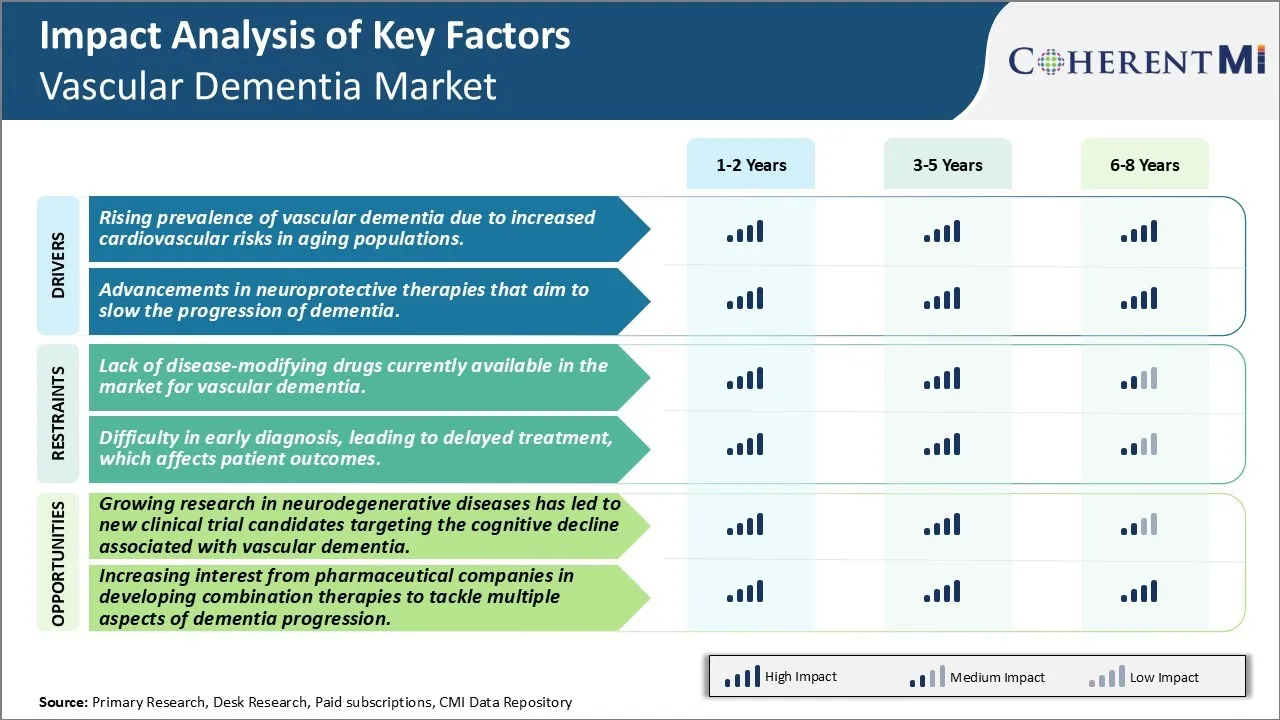Vascular Dementia Market Trends
Market Driver - Advancements in Neuroprotective Therapies that Aim to Slow the Progression of Dementia.
There is currently no cure for conditions like vascular dementia and Alzheimer’s disease which are the two most common types of dementia. However, research efforts into preventing or slowing down neural degeneration through neuroprotective therapeutics have gained significant momentum in recent years. One disease-modifying approach being widely explored is through drugs that can protect neurons from oxidative stress and reduce inflammation in the brain—two major drivers of neurodegeneration according to current scientific understanding.
Some clinical trials are under way to evaluate the efficacy of popular antidiabetic drugs like glucagon-like peptide 1 receptor agonists in improving cognitive functions by clearing amyloid plaques and enhancing neurogenesis. Several phase 3 studies are also testing cholesterol-lowering statins to determine if long term usage starting from early middle-age can delay onset or slow progress of dementia when used for primary prevention in those at high risk, rather than short term usage in late stages. Trials on repurposing other cardiovascular treatments like antihypertensives that can protect cerebral vessels from microhemorrhages are also ongoing.
Meanwhile, researchers are developing novel biological therapies and immunotherapies targeting amyloid and tau protein clumps implicated in neurodegeneration. Stem cell therapy and gene therapy hold future promise, although practical advances still remain few years away. With advancing diagnostic tests that can detect very early biological changes associated with cognitive decline, it may also become possible to identify individuals who could benefit most from early neuroprotective interventions even before noticeable symptoms appear. If proven successful, such disease-modifying drugs and therapies may significantly help delay the need for extensive medical supervision in dementia.

Market Challenge - Lack of Disease-Modifying Drugs Currently Available in the Market for Vascular Dementia.
One of the major challenges faced in the vascular dementia market is the lack of effective disease-modifying treatments. Currently, there are no approved drugs that can slow or stop the progression of vascular dementia. The drugs available in the market are limited to only managing symptoms but do not address the underlying disease pathology. This leads to continuous cognitive decline in patients over time. Developing novel therapeutic approaches targeting the complex etiology of vascular dementia has proven difficult. The heterogeneous nature of vascular dementia, which can be caused by several different vascular brain injuries or lesions, poses a challenge for drug development. Demonstrating efficacy of potential disease-modifying drugs in clinical trials also requires longer trial periods and larger sample sizes due to the slow progression of the disease. The failure of many drug candidates in late-stage clinical trials further highlights the significant challenge in the market.
Market Opportunity: Growing Research in Neurodegenerative Diseases Has Led to New Clinical Trial Candidates Targeting the Cognitive Decline Associated with Vascular Dementia.
The increasing prevalence of vascular dementia and lack of effective treatment options have spurred more research activity targeting the disease. There is growing understanding of the molecular pathways involved in neurodegeneration and blood vessel damage leading to vascular dementia. This has enabled researchers to identify novel targets and develop new classes of drugs such as anti-inflammatory, anti-amyloid, and gene therapy approaches. Several pharmaceutical companies have started late-stage clinical trials evaluating disease-modifying drug candidates that aim to block specific disease mechanisms. Furthermore, advances in diagnostic testing allow earlier identification of patients in the mild cognitive impairment stage before irreversible damage occurs. This provides a longer window for potential treatment. If successful, these clinical programs can validate new therapeutic strategies and lead to the first approved disease-modifying drugs for vascular dementia in the coming years. This will capture a large unmet need and present major growth opportunities in the vascular dementia market.